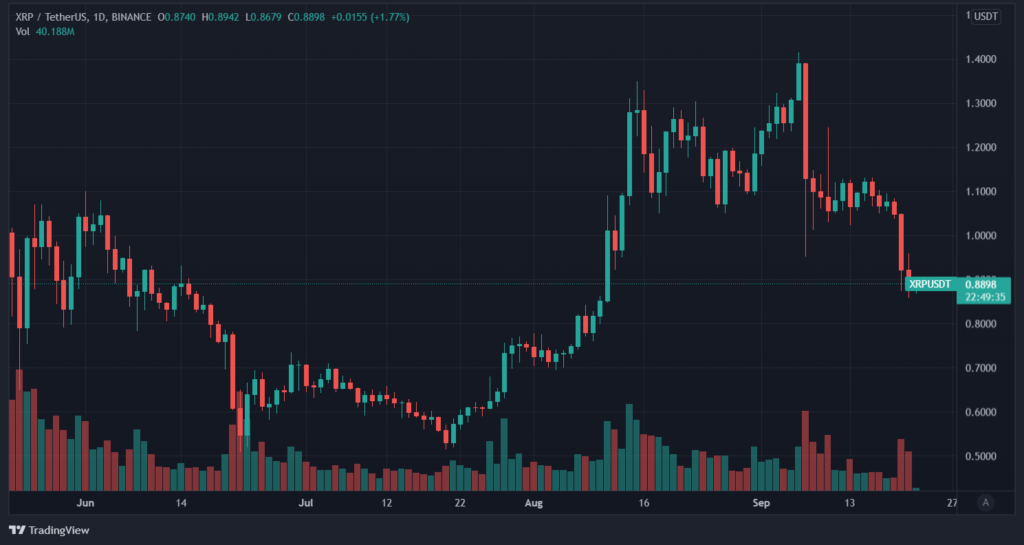A federal judge in New York has denied Ripple Labs’ motion to order the U.S. Securities and Exchange Commission (SEC) to produce records of its employees’ crypto transactions in an effort to prove that the agency did not consider XRP to be a security.
The SEC Wins One Against Ripple
According to an official transcript, Ripple filed the request on August 27. Their rationale for the request was that if it were discovered that the SEC employees had traded XRP, it would at a minimum expose the SEC’s past lack of clarity about the nature of XRP and at most prove that the SEC did not consider XRP to be a security before.
Defendants argue that individual trading decisions will, at a minimum, expose the lack of clarity regarding XRP’s status and whether the SEC believed XRP to be a security. Such evidence arguably would undermine the SEC’s allegations that the Individual Defendants acted recklessly and would bolster the Defendants’ fair notice defense. Defendants contend that they are entitled to know whether the SEC permitted its employees to sell, buy, and hold XRP “as market participants” during the relevant period.
But Judge Sarah Netburn disagrees with Ripple for several reasons.
First, she upholds the relevance of the SEC’s argument that “the preclearance decision process does not involve any determination by SEC Ethics Counsel that a trade complies with the securities laws,” i.e., the SEC Ethics Counsel had not proposed any provision expressly relevant to XRP, so the trading history of SEC employees is irrelevant for the case.
Another key argument for the denial was essentially the lack of legal justification to approve Ripple’s demands. The federal rule protects the privacy rights of SEC employees as U.S. citizens.
As to the annual certifications that Defendants seek, Congress has presumptively prohibited disclosure of such financial information through federal privacy statutes and regulations in order to maintain government employees’ privacy.
Ripple tried to use a similar argument earlier. The SEC asked for access to Ripple’s internal communications via Slack. As Cryptopotato previously reported, Ripple argued that producing such documents wouldbe a long, expensive process. This was not enought for the Court, which ended up ruling in the SEC’s favor.
Finally, the court explains that, in fact, the SEC had no trading policy regarding digital assets during the period of interest for the lawsuit, so its employees did not act in violation of the rule even if they had traded cryptocurrencies.
XRP Remains (Relatively) Unfazed
XRP did not overreact to the disappointing news. Generally speaking, the XRP market moves in pace with the developments of the Ripple-SEC situation, with rallies when Ripple scores a win and crashes when the San Francisco-based company has any setbacks (like today’s).
Currently, XRP is trading around $0.878, down about 5% in the last 24 hours and slightly recovering about 0.5% so far today.
This seems to be more of a natural reaction to the state of the markets than to Ripple’s case, in fact. Bitcoin, the SP500, and most global markets are going through a period of nervousness after the infamous Evergrande scandal exploded.





















